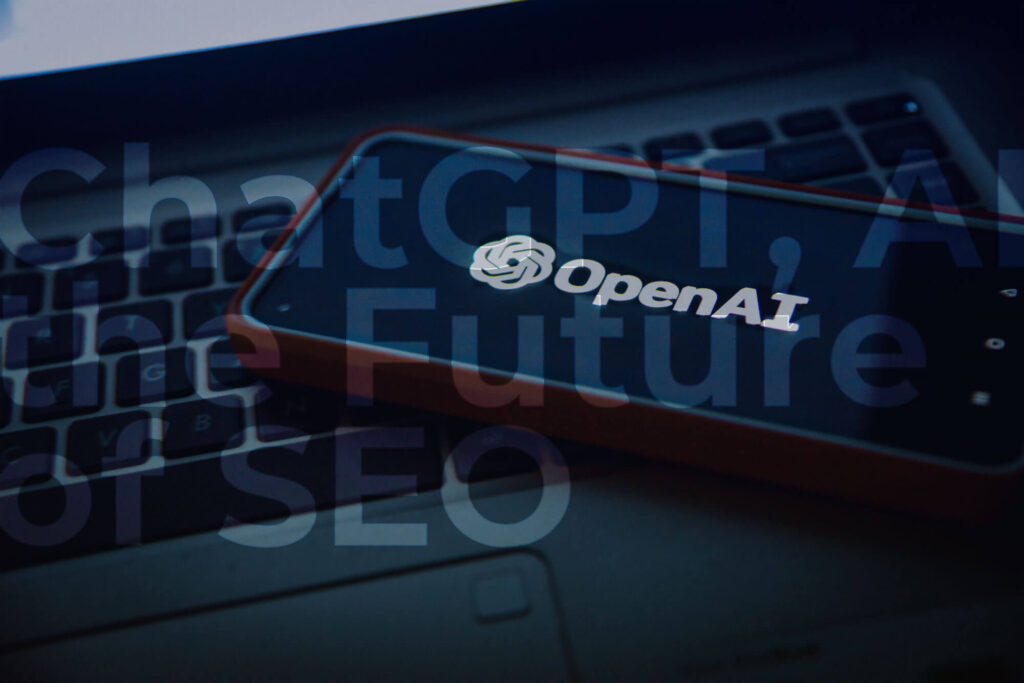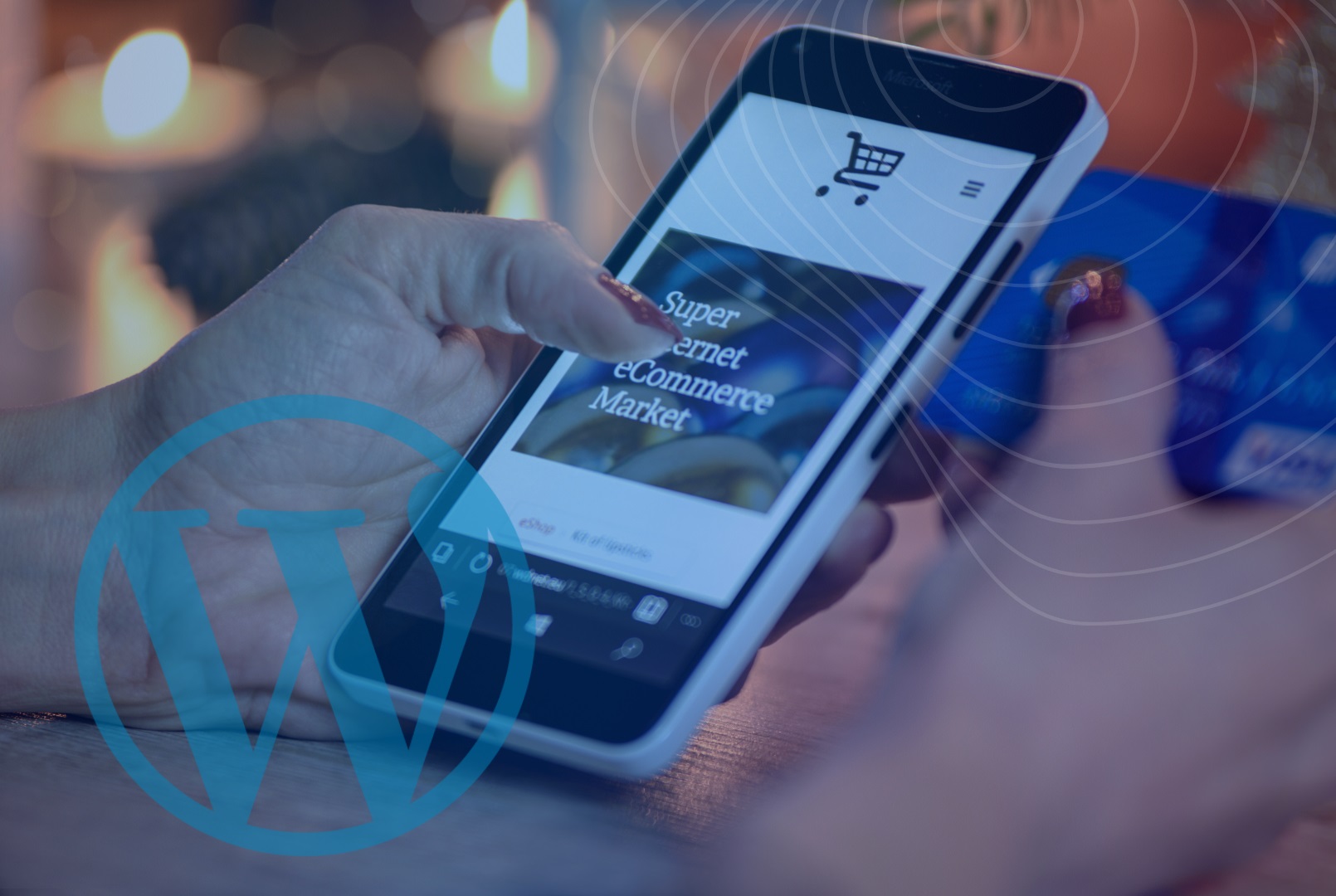Chat GPT for Ecommerce. Full guide and success use cases
The eCommerce industry is growing rapidly, and so is the competition. With millions of online stores vying for customer attention, businesses need to do everything possible to stay ahead of the game. One way to do that is by offering exceptional customer service. That’s where ChatGPT for eCommerce comes in.
ChatGPT has made a revolution in the world of customer service. It’s an AI-powered chatbot that uses natural language processing to converse with customers in a human-like manner. According to statistics, about 53% of people can’t tell that its content was created by artificial intelligence, which gives a lot of possibilities for applying this product. ChatGPT can be integrated into eCommerce websites, mobile apps, and other digital channels to provide personalized, real-time assistance to customers.
At Default Value, we understand the importance of customer service in eCommerce, and that’s why we’re here to help businesses implement ChatGPT in their eCommerce solutions. So let’s dive into this interesting topic and figure out what this new tool can do for your business!
What is ChatGPT?
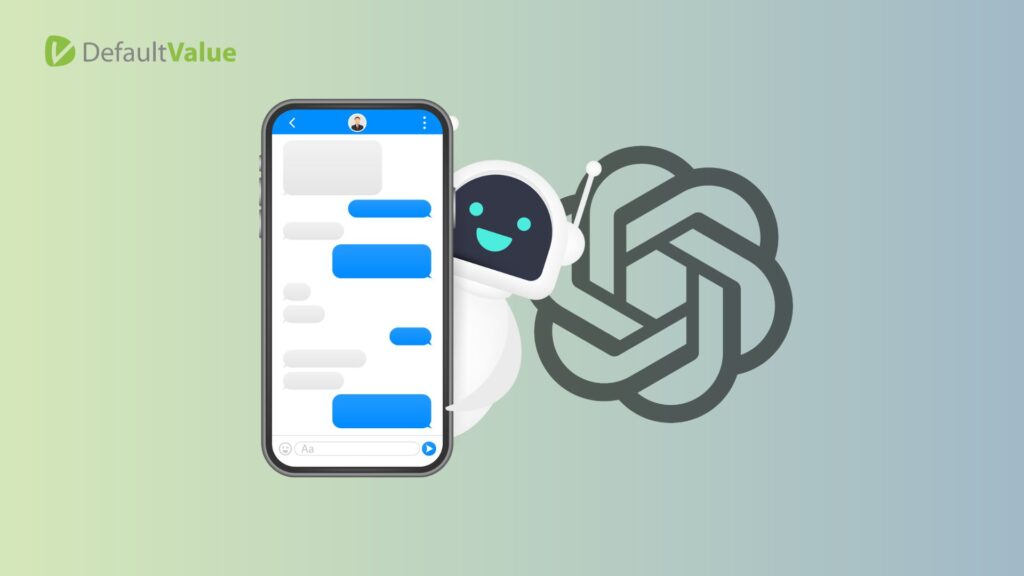
ChatGPT is an AI-powered chatbot that uses natural language processing (NLP) to understand and respond to customer queries. It’s based on the GPT (Generative Pre-trained Transformer) architecture, which is a state-of-the-art language processing model developed by OpenAI.
ChatGPT can understand and interpret customer queries in a way similar to a human customer service representative. It can provide personalized recommendations, answer frequently asked questions, and even assist with complex tasks such as placing an order or checking the status of a shipment.
How to use ChatGPT in eCommerce solutions?
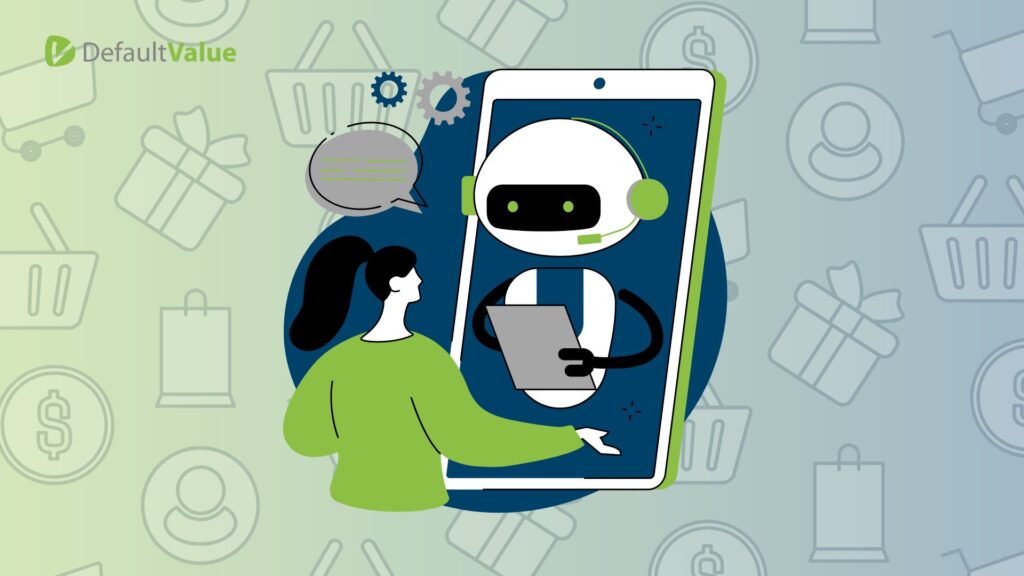
Integrating ChatGPT into eCommerce solutions is a relatively straightforward process. Here are the steps involved:
Step 1: Determine the use case—The first step in using ChatGPT is determining your business’s specific use case. This could be anything from providing product recommendations to answering customer queries.
Step 2: Train the model—Once you’ve determined the use case, you’ll need to train the ChatGPT model on a dataset of customer queries and responses. This will help the model understand the context and language used in customer queries.
Step 3: Deploy the chatbot—Once the model is trained, it’s time to deploy it on your eCommerce website, mobile app, or other digital channels. This can be done using a chatbot platform or by building a custom integration.
Step 4: Monitor and optimize—Finally, monitoring the chatbot’s performance and optimizing it over time is important. This could involve fine-tuning the model, adding new training data, or improving the user interface.
Benefits of ChatGPT for eCommerce
There are several benefits of using ChatGPT eCommerce solutions, including:
- Improved customer experience—ChatGPT can provide personalized, real-time assistance to customers, improving the overall customer experience and increasing customer satisfaction.
- 24/7 support—ChatGPT can provide support around the clock, even outside of normal business hours. This can help businesses provide better support to customers in different time zones.
- Reduced support costs—ChatGPT can handle a large volume of customer queries simultaneously, reducing the need for human customer service representatives and lowering support costs.
- Increased sales—ChatGPT can provide personalized product recommendations and assist with ordering, leading to increased sales and revenue.
Limitations of ChatGPT for eCommerce
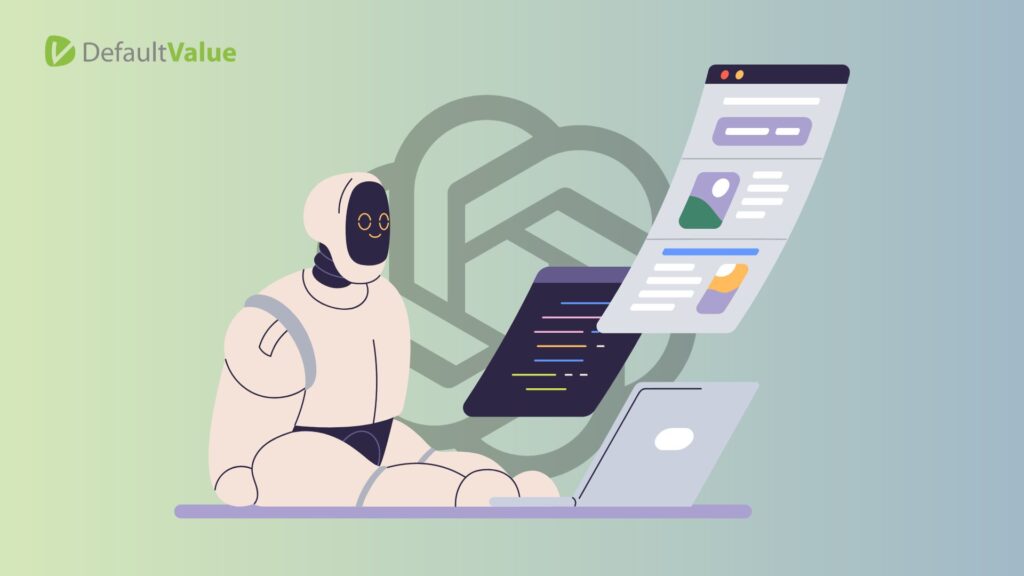
ChatGPT has been gaining popularity in eCommerce as a tool that can enhance customer experience and give businesses a competitive edge. However, like any technology, ChatGPT has its limitations that must be considered before implementation.
Limited Context Understanding
ChatGPT is a language model that is trained on large amounts of text data. While it can generate human-like responses to various prompts, it cannot fully understand the context. In an eCommerce setting, this can be a significant limitation. Customers may use specific jargon, acronyms, or technical terms that ChatGPT may not understand, leading to inaccurate or unhelpful responses.
Inability to Empathize
One of the significant limitations of ChatGPT for eCommerce is the inability to empathize with customers. While ChatGPT can generate human-like responses, it cannot empathize with a customer’s frustration or provide emotional support like a human.
Limited Multilingual Support
ChatGPT has been trained primarily on English-language data, which means that it may not be as effective in supporting customers who speak other languages. While multilingual models are available, they may not provide the same level of accuracy and fluency as the English-language model.
Lack of Personalization
ChatGPT generates responses based on patterns in the data it has been trained on, but it cannot personalize responses to individual customers. Personalization is key to providing a positive customer experience in an eCommerce setting. Customers expect businesses to understand their preferences and tailor their interactions accordingly.
Security and Privacy Concerns
ChatGPT generates responses by analyzing and processing large amounts of customer data. While this can provide valuable business insights, it can also raise security and privacy concerns. Customers may be hesitant to share personal information with a machine-learning algorithm, and there is a risk that sensitive data could be compromised.
What are ChatGPT Alternatives for eCommerce?

While ChatGPT has shown great promise in revolutionizing customer experience in eCommerce, several alternative solutions can be used to enhance it and drive sales. Let’s take a look at some of the popular ChatGPT alternatives for eCommerce.
Chatbots
Chatbots are computer programs that can simulate conversations with users. They can be used to provide customer service, answer common queries, and even process orders. Chatbots are often used in eCommerce to provide 24/7 customer support and automate routine tasks such as order tracking and status updates.
Voice Assistants
Voice assistants such as Amazon Alexa and Google Assistant are becoming increasingly popular in eCommerce. They allow customers to interact with eCommerce platforms using voice commands, making the process more natural and intuitive. Voice assistants can be used to place orders, search for products, and even track shipments.
Virtual Assistants
Virtual assistants are AI-powered tools that can perform various tasks, such as scheduling appointments and setting reminders. In eCommerce, virtual assistants can be used to provide personalized product recommendations and help customers navigate the buying process.
Live Chat
Live chat is a popular alternative to ChatGPT that allows customers to interact with human agents in real-time. This can be particularly useful for complex queries or issues that require a human touch. Live chat can be used to provide instant support, answer product-related questions, and even close sales.
Use Cases of ChatGPT in eCommerce
So, where to use ChatGPT? Let’s take a look at some use cases.
| Customer Service | ChatGPT can be used to handle customer service inquiries. It can answer common questions about products, shipping, and returns and can also provide personalized recommendations based on the customer’s previous purchases. This saves time for both the customer and the business. |
| Personalized Shopping Experience | ChatGPT can be used to provide a personalized shopping experience. By analyzing customer data such as previous purchases, browsing history, and demographic information, ChatGPT can make product recommendations and offer discounts and promotions that are tailored to the customer’s interests. |
| Lead Generation | ChatGPT can be used to generate leads for eCommerce businesses. By engaging with customers in real time, it can capture their contact information and use it to follow up with them later. This can help businesses to increase their customer base and drive sales. |
| Upselling and Cross-Selling | ChatGPT can be used to upsell and cross-sell products to customers. By analyzing their purchase history and browsing behavior, it can recommend complementary products that the customer may be interested in. This can help businesses to increase their average order value and drive revenue. |
| Product Reviews and Ratings | ChatGPT can be used to collect and analyze customer reviews and ratings. By analyzing customer feedback, businesses can improve their products and services and provide a better shopping experience to their customers. |
In conclusion, ChatGPT is a powerful tool that can be used to enhance the customer experience in eCommerce. Automating customer service, providing personalized shopping experiences, generating leads, and optimizing product recommendations, can help eCommerce businesses to increase their revenue and build strong customer relationships.
Future of Chat GPT
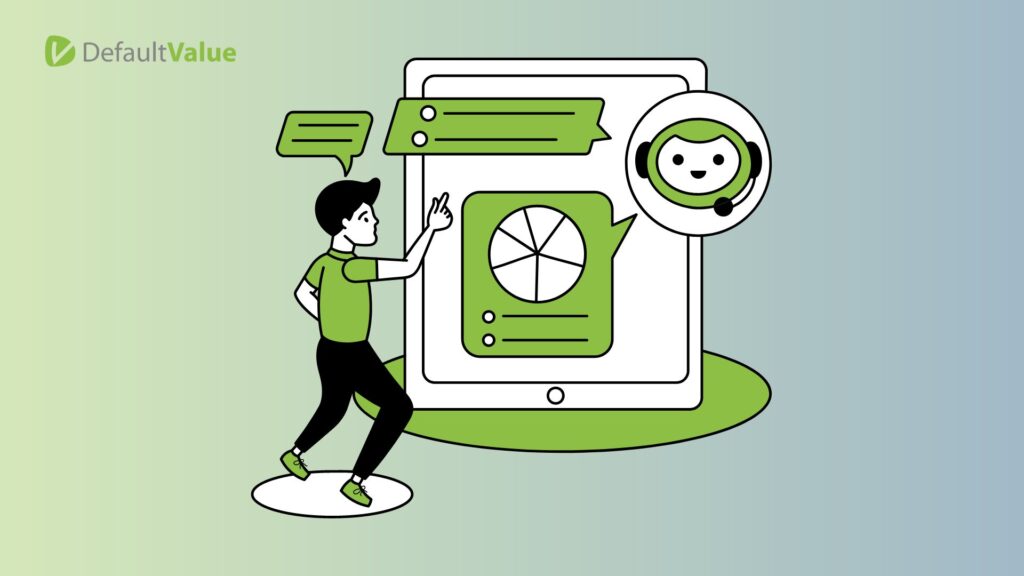
The future of ChatGPT looks very promising, not only for the eCommerce industry but for many other sectors as well. The technology behind ChatGPT is continually advancing, making it more accurate and more versatile than ever before.
One potential future development for Chat GPT is the integration of voice capabilities. This would allow users to interact with ChatGPT using natural language and voice commands, making the shopping experience even more seamless and intuitive.
Another area where ChatGPT could have a significant impact is in the realm of personalization. As the technology improves, ChatGPT could become more adept at tailoring its responses and recommendations to individual users’ preferences and past behavior, creating a more personalized shopping experience.
In addition to these advancements, ChatGPT could also benefit from improvements in natural language processing and machine learning algorithms. These technologies could help it better understand complex queries and respond with more accurate and relevant information.
As for the eCommerce industry, Chat GPT has the potential to become an indispensable tool for businesses of all sizes—both in B2C and B2B eCommerce solutions. Its ability to handle customer inquiries, recommend products, and provide support around the clock can help businesses increase customer satisfaction and loyalty while reducing customer service costs.
Overall, the future of Chat GPT is very bright. With the continued advancement of natural language processing, machine learning, and other related technologies, Chat GPT will likely become an even more powerful tool for eCommerce businesses in the future.
Conclusions
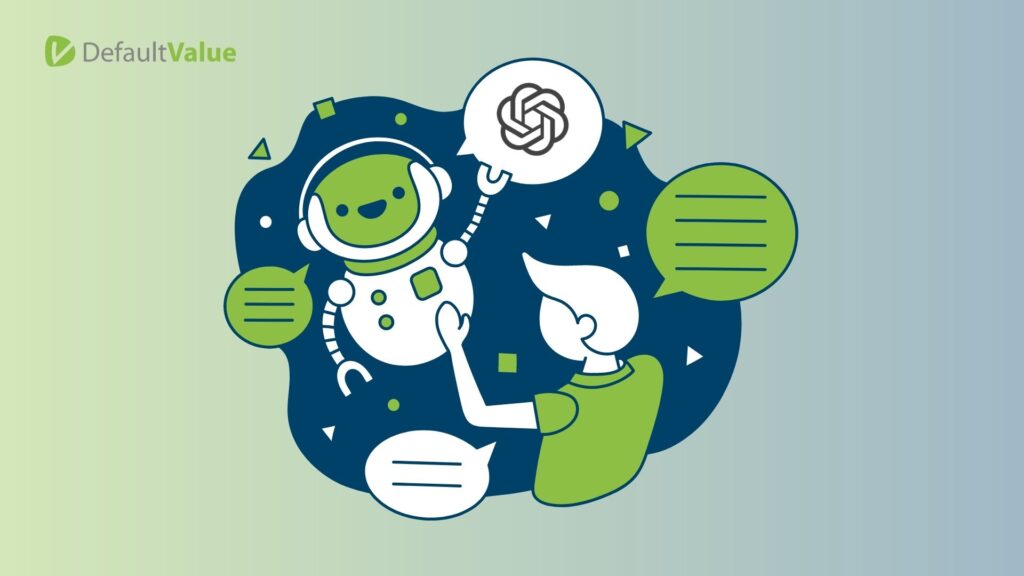
Well, in the future, ChatGPT is expected to continue evolving and improving, making it an increasingly valuable tool for eCommerce businesses. As technology advances, eCommerce businesses will have more opportunities to use ChatGPT for everything from product recommendations to personalized marketing campaigns.
At Default Value, we understand businesses’ challenges in implementing and utilizing AI effectively. Our team can help businesses navigate the complexities of using AI in eCommerce business solutions and tailor this technology to your specific needs. By partnering with us, eCommerce businesses can gain a competitive edge in the market by delivering exceptional customer experiences through new technologies.
By staying up-to-date with the latest developments in ChatGPT and working with experts like Default Value, eCommerce businesses can position themselves for success in an ever-changing industry.
